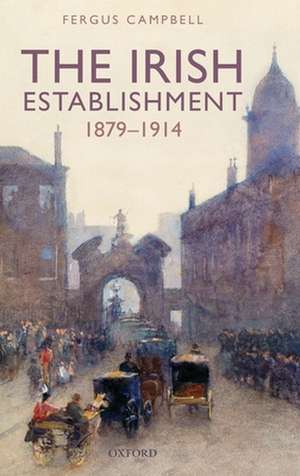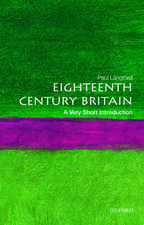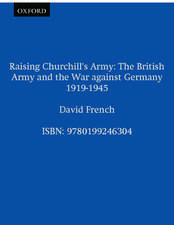The Irish Establishment 1879-1914
Autor Fergus Campbellen Limba Engleză Hardback – 6 aug 2009
| Toate formatele și edițiile | Preț | Express |
|---|---|---|
| Paperback (1) | 243.36 lei 10-16 zile | |
| OUP OXFORD – 30 iun 2020 | 243.36 lei 10-16 zile | |
| Hardback (1) | 908.26 lei 31-37 zile | |
| OUP OXFORD – 6 aug 2009 | 908.26 lei 31-37 zile |
Preț: 908.26 lei
Preț vechi: 1241.81 lei
-27% Nou
Puncte Express: 1362
Preț estimativ în valută:
173.79€ • 181.45$ • 143.84£
173.79€ • 181.45$ • 143.84£
Carte tipărită la comandă
Livrare economică 25-31 martie
Preluare comenzi: 021 569.72.76
Specificații
ISBN-13: 9780199233229
ISBN-10: 0199233225
Pagini: 364
Ilustrații: 54 tables
Dimensiuni: 163 x 241 x 27 mm
Greutate: 0.69 kg
Ediția:New.
Editura: OUP OXFORD
Colecția OUP Oxford
Locul publicării:Oxford, United Kingdom
ISBN-10: 0199233225
Pagini: 364
Ilustrații: 54 tables
Dimensiuni: 163 x 241 x 27 mm
Greutate: 0.69 kg
Ediția:New.
Editura: OUP OXFORD
Colecția OUP Oxford
Locul publicării:Oxford, United Kingdom
Recenzii
A remarkably detailed and wide-ranging monograph on Ireland's social elite in the last four decades of the Union.
This groundbreaking study...bristles with provocative insights and conclusions... Campbell's book is a significant advance in the history of the last years of the Castle regime and the Irish establishment and will be required reading for students of the period.
This is an excellent book, intelligently written and well worth reading
a highly recommended study of outstanding scholarship which will be of interest to those interested in late nineteenth- and early twentieth-century Ireland.
Campbell's research is altogether impressive and its results are clearly and eloquently presented: there is no question that he has produced an important study, which will remain a classic in its field.
notable contributions to understanding the decline and death of union in the late nineteenth and early twentieth centuries ... intricate and granular researches
This groundbreaking study...bristles with provocative insights and conclusions... Campbell's book is a significant advance in the history of the last years of the Castle regime and the Irish establishment and will be required reading for students of the period.
This is an excellent book, intelligently written and well worth reading
a highly recommended study of outstanding scholarship which will be of interest to those interested in late nineteenth- and early twentieth-century Ireland.
Campbell's research is altogether impressive and its results are clearly and eloquently presented: there is no question that he has produced an important study, which will remain a classic in its field.
notable contributions to understanding the decline and death of union in the late nineteenth and early twentieth centuries ... intricate and granular researches
Notă biografică
Fergus Campbell was born at Carlisle, England on 15 March 1970. He was educated at St. Margaret Mary's and the Newman school, Carlisle, before attending Wadham College, Oxford and Bristol University. He has taught at the Queen's University, Belfast, NUI Maynooth and Newcastle University where he is currently a lecturer in modern British and Irish history.















